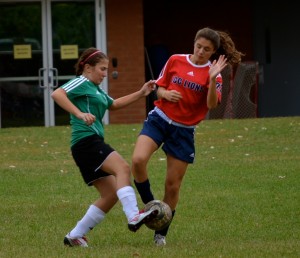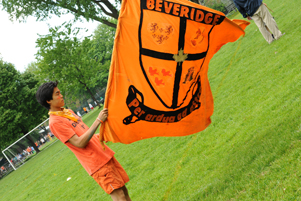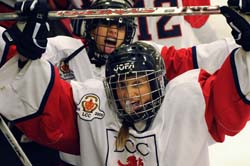 I was thinking about sports over the weekend and reflected on the difference between “competing” and “participating.” When it comes to high-level athletics, to be among the best, athletes really have to be competitors. This requires extraordinary commitment in terms of time, skill development and physical training, and this is usually at the expense of social time or doing other sports or activities. To truly be among the best requires significant sacrifice.
I was thinking about sports over the weekend and reflected on the difference between “competing” and “participating.” When it comes to high-level athletics, to be among the best, athletes really have to be competitors. This requires extraordinary commitment in terms of time, skill development and physical training, and this is usually at the expense of social time or doing other sports or activities. To truly be among the best requires significant sacrifice.
Many of our senior level teams are comprised of athletes who have had to sacrifice to attain excellence. However, we also seek a balance at LCC where students can play different sports – and mix athletics with art, drama, music, service, debating, robotics, international exchange opportunities or some of our many other activities.
If students choose to move to a higher level of play after LCC, they should expect the sacrifice to be greater. This is evident in the commitment required of junior and college-level athletics, which ask more from even the best athletes.
I thought about this last weekend when all of our media outlets inundated us with the stories of two competitors who suffered horrible accidents while playing their sport. Sidney Crosby took a deflected slap shot to the face – lost several teeth and suffered a broken jaw and underwent surgery on Saturday night – just as he was leading all scorers in the NHL by a significant margin. Meanwhile, on the basketball court in the “March Madness” NCAA tournament, Kevin Ware, one of the stars for #1 ranked Louisville, jumped to block a pass and landed awkwardly, suffering a freak broken leg: a gruesome compound fracture that shocked the players, fans and viewers who witnessed it. Both of these injuries stopped viewers in their tracks. They remind us that debilitating injuries are part of sport at the highest level. Ultimately, it’s part of the risk of being a competitor.
But how about simply being a participant? What is the value of simply being active? We all benefit from organized sport – developing skills, the camaraderie of being on a team and enhanced fitness. Students all across this country play team sports that most will never play beyond high school. There are also a host of life sports that are usually less competitive, but are also popular. These are the sports that students can participate in for the rest of their lives for the sheer pleasure of it or the extended health benefits –sports like yoga, golf, swimming, dance, tennis.
My hope is that all of our students try both competitive team and “life sports” by the time they graduate. There are enormous benefits from involvement in both.
So when I consider the mix of competition and participation, I believe the two are well combined in the following video that embodies the sheer joy of sport. Check out these gentlemen competing this year in Spain at the world Master’s Games. It is the 100 Metre men’s final in the 90+ age category. Only two competitors on the starting line – one from Finland, one from Belgium. Before you watch, remember the story of the hare and the tortoise… –Chris Shannon, Headmaster


